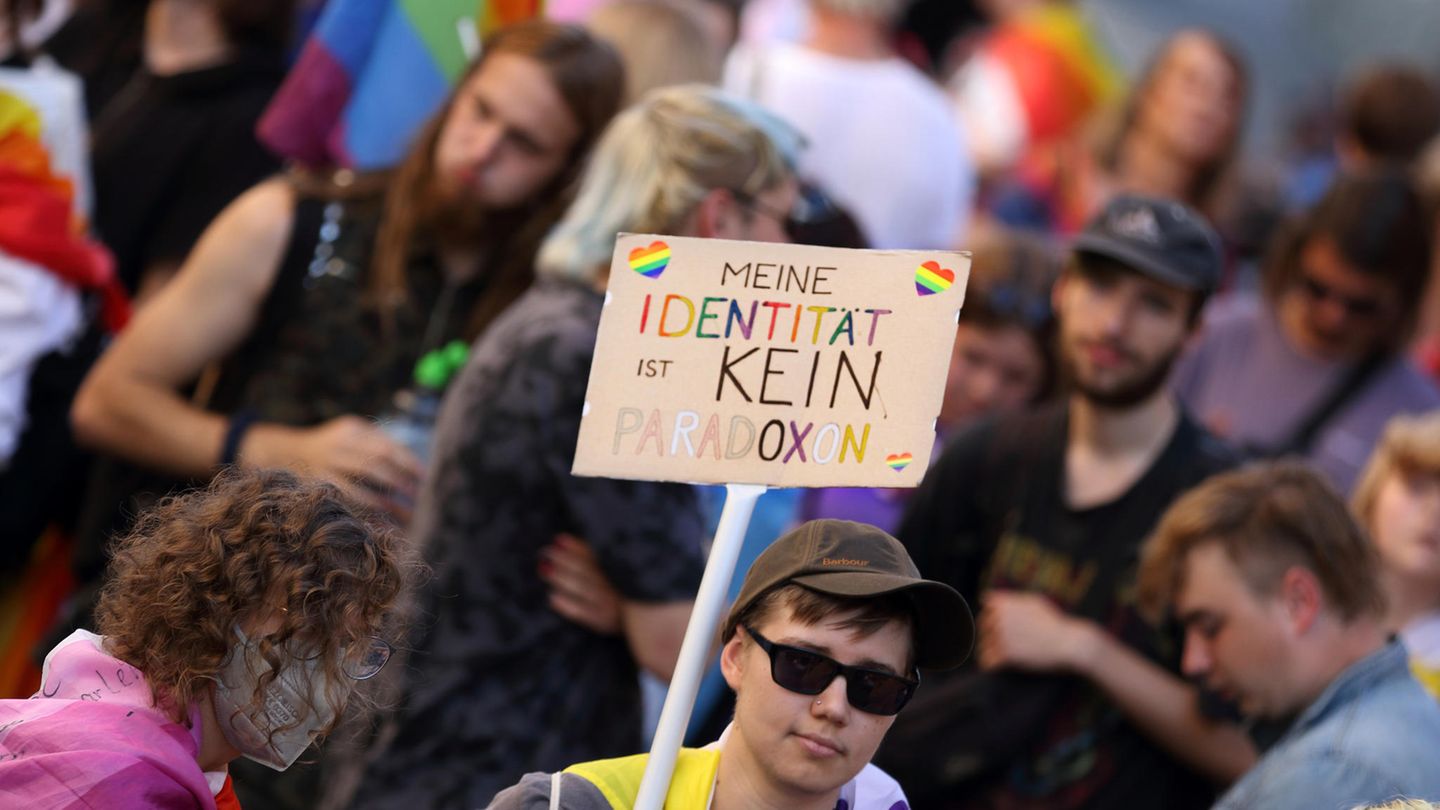The Self-Determination Act is up for a roll-call vote in the Bundestag. It makes it easier to change gender entries, but it is also met with criticism. Answers to the most important questions.
Those affected and their supporters have fought for this for many years; now the controversial transsexual law should actually be abolished. Instead, the traffic light coalition wants to use a self-determination law to ensure that a simple declaration to the registry office is sufficient to change your gender entry or first name. Those affected should also be protected from unwanted outing. A roll-call vote will take place in the Bundestag on Friday. If the Bundestag approves the law on Friday, it will be considered passed. The approval of the Federal Council is not required. The law is scheduled to come into force on November 1, 2024.
Who is the law aimed at?
The new regulation is aimed at trans, intersex and non-binary people. Transgender people are people who do not identify with the gender they were assigned at birth. People who have physical sexual characteristics that are not exclusively male or female are referred to as intersex. Non-binary refers to people who do not classify themselves as male/female.
Which regulations apply so far?
The transsexual law, which dates back to 1980, stipulates that those affected must submit two psychological reports in order to change their gender or first name entry. In the end, the responsible district court decides. Parts of the regulations have now been rejected by the Federal Constitutional Court. Those affected criticize the procedure as lengthy, expensive and degrading – they speak of a “compulsory psychiatric assessment”.
What should apply in the future?
Adult transgender, intersex and non-binary people should in future be able to change their gender entry and first name by making a declaration to the registry office. The previous obligation to present a medical certificate for this should no longer apply. Then documents such as the passport can be rewritten. This required “declaration with self-insurance” does not have to be accompanied by an expert opinion and is not subject to judicial review. It is independent of the extent to which the person concerned decides to undergo gender reassignment medical interventions. Those affected simply have to declare that the requested change best corresponds to their gender identity.
What about people under 18?
For children under 14, parents should be able to submit the necessary declaration to the registry office. Young people aged 14 and over can do this themselves, but only with the consent of their parents. If there are conflicts within the family, the family court can make the decision. The standard should be the child’s best interests.
How often can the gender entry be changed?
There is no limit on numbers. However, there should be a blocking period of one year – only after that will a new change be possible. “This serves to protect against haste and is intended to ensure the seriousness of the change request,” it says in the draft. There is a three-month deadline for the change in gender entry to come into force.
Were there any changes to the bill?
After heated debates, some tightening measures were introduced compared to the federal government’s original draft. A prerequisite for changing the entry should be that it must be registered with the responsible registry office three months in advance.
Pride parades
The most beautiful pictures from the CSD in Hamburg and Nuremberg
Which regulations were particularly controversial?
There were intensive debates on the question of domestic rights and access to protected spaces – such as saunas, changing rooms, women’s shelters and other protective spaces, especially for women. Some women’s rights activists had expressed concerns about having to open such places of protection to trans people in general. However, the Self-Determination Act now leaves private household rights unaffected. However, the General Equal Treatment Act (AGG), which is intended to prevent discrimination, always applies.
The Federal Ministry of the Interior recently had concerns about earlier adoption of the new law. The fear: Criminals could take advantage of the change of identity and thus evade law enforcement authorities. According to media reports, this should be avoided with the revised version of the draft that has now been presented.
What does the opposition say?
Bundestag member Sahra Wagenknecht is strictly against the planned self-determination law, which is intended to simplify gender entries at the registry office. The adoption of the law, which was scheduled for Friday, was a serious socio-political mistake, Wagenknecht told the news portal T-Online. “The law will force people into sex changes who will then bitterly regret it.”
The AfD and the Union have also recently criticized the planned law sharply. They fear that gender entries could be changed arbitrarily in the future. The deputy chairwoman of the Union parliamentary group, Andrea Lindholz (CSU), sharply criticized the planned self-determination law. “The traffic light factions have made a mistake with this law and are overshooting the mark,” explained Lindholz on Wednesday in Berlin. Not only is the protection of children and minors being criminally disregarded, “the traffic light now creates a real security risk with the Self-Determination Act.” The deputy Union parliamentary group leader Dorothee Bär (CSU) fears that young people could be encouraged to take gender reassignment measures.
Source: Stern
I have been working in the news industry for over 6 years, first as a reporter and now as an editor. I have covered politics extensively, and my work has appeared in major newspapers and online news outlets around the world. In addition to my writing, I also contribute regularly to 24 Hours World.




